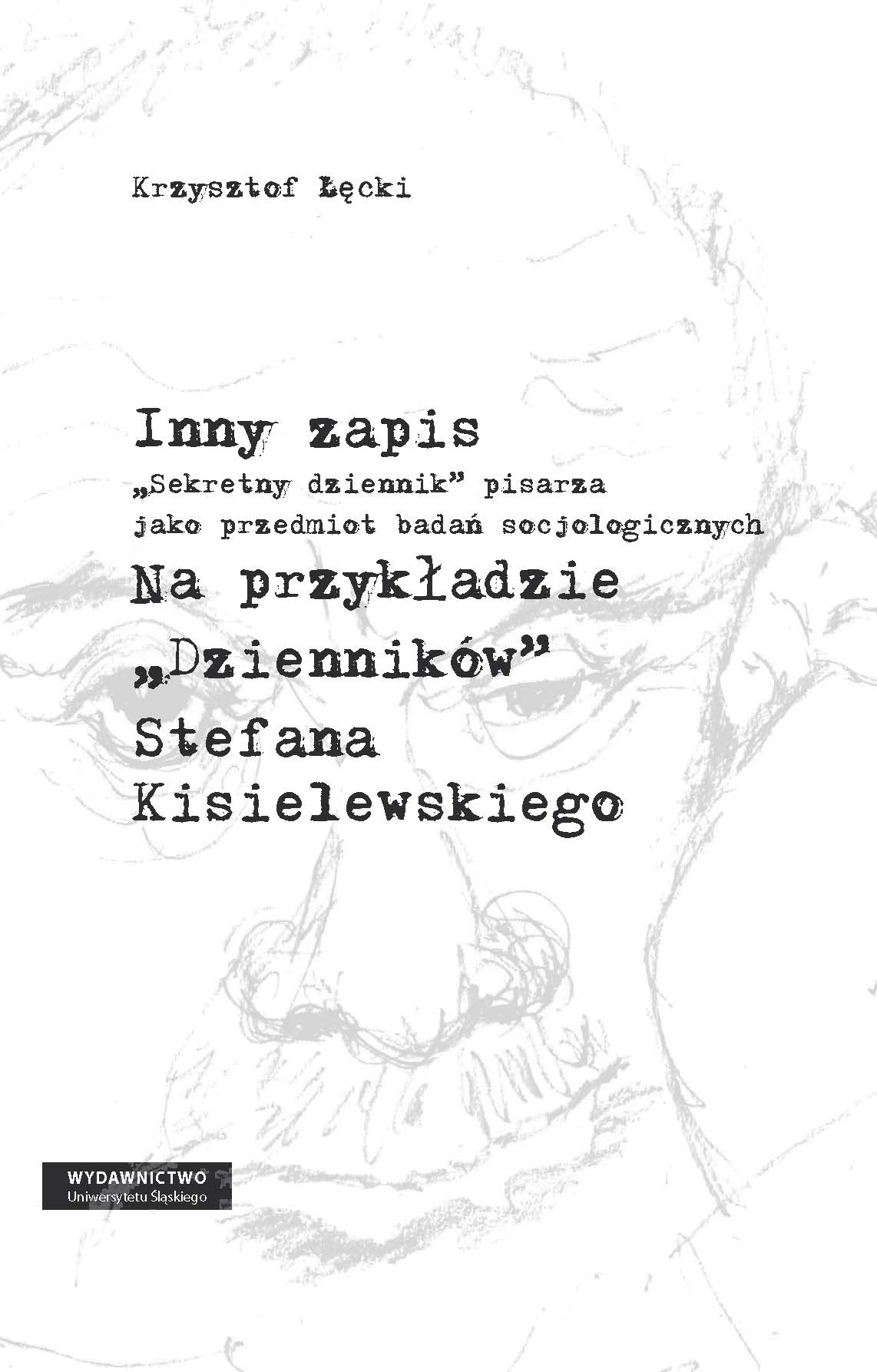Inny zapis. „Sekretny dziennik” pisarza jako przedmiot badań socjologicznych. Na przykładzie „Dzienników” Stefana Kisielewskiego
Another record. A writer’s “secret diary” as an object of sociological study. The case of the Diaries by Stefan Kisielewski
Author(s): Krzysztof Łęcki
Subject(s): Sociology
Published by: Wydawnictwo Uniwersytetu Śląskiego
Keywords: Stefan Kisielewski
Summary/Abstract: The book, construed as an empirical study from the field of sociology ofliterature,proposes “a socio-literary analysis of a specific personal document”(Z. Bokszański), that is a writer’s “secret diary”. The subject ofinterest here is a more or less regularly written diary (not a journal or amemoir) kept by a writer (hence the lack of better and more objective criteria,it is assumed that he is a member of the Polish Writers’ Associationand an author of fictional texts whose diary was published posthumouslyin unedited form).The volume, apart form the Preface and Introduction, which contain anattempt to define the nature and scope of problems dealt with in the work,consists of five chapters. The first chapter entitled The sociology of literature– a slightly different sociology, presents and characterizes the eponymousfield of study – a specific sub-discipline positioned between sociologyand literary studies, whereas the very issue was discussed in a broadercontext, reflecting on the meaning of untypical (non-standard) sociologicaldata in general, not only the ones directly connected to literature.The second chapter, A secret diary – between a journal and literature(a sociology and a writer’s secret diary), clarifies the meaning of a “secretdiary” as an object of sociological studies, as well as characterizes relationshipbetween the secret diary record and records of the similar kind, in particular,that of memoirs (the memories written down after a long period oftime). The very chapter also deals with the issue of the honesty of recordsthe author of which does not (for various reasons) decide to publish, be itin the press or as a book. Also, the issue of a timespan of the posthumouspublication of a secret diary is important for reception.The third chapter, A methodological note, is devoted to the issue of representativity(in the perspective a writer’s secret diary deserves) and to therules of interpretation vital while analyzing this peculiar kind of literatureor a personal document. The chapter in question discusses the problemof text interpretation in social sciences and philosophy in a much broadermanner. The following chapter, Kisiel and his diaries (between a popularand official one), briefly presents a profile, path of life and social position ofStefan Kisielewski and justifies the choice of his diary records as an objectof sociological studies, as well as presents the issue of the tempestuousreception of the Diaries.The subsequent chapter, in a much shortened way, is devoted to thecharacteristics of anti-Semitism as a, to quote Kisiel himself, “unique issue”.It constitutes a kind of introduction to a larger part of the dissertation,which presents and analyses the Jewish and anti-Semitism questions in thecontext of March 1968 and the following events during which the recordsof Kisiel were created. Specifically, Kisiel’s attitude to racism, philo- andanti-Semitism, Polish anti-Semitism of 1968, Israel and Zionism, Polishnationalism, and last but not least, the issue of involvement of the Jewsand Poles of Jewish origin in Marxism, communism and Marxist revisionismwere described.
- E-ISBN-13: 978-83-8012-496-7
- Print-ISBN-13: 978-83-226-2031-1
- Page Count: 418
- Publication Year: 2012
- Language: Polish
- eBook-PDF
- Table of Content
- Introduction

